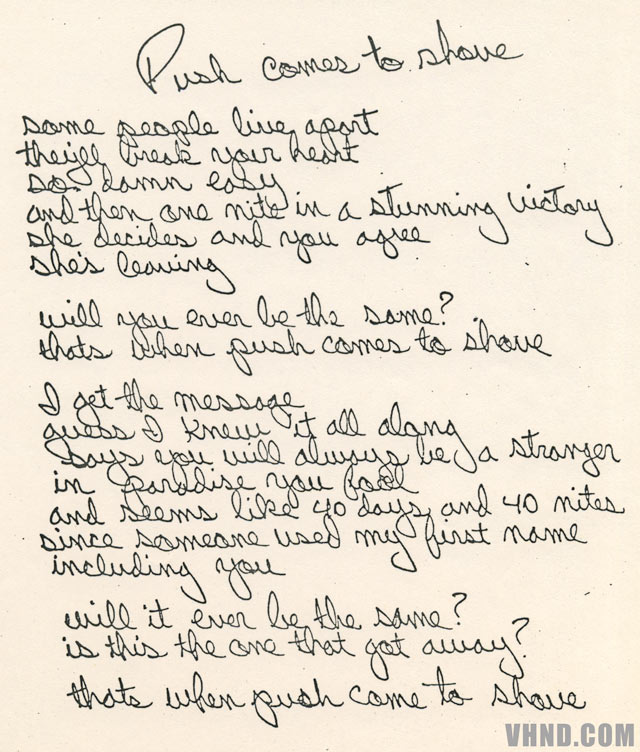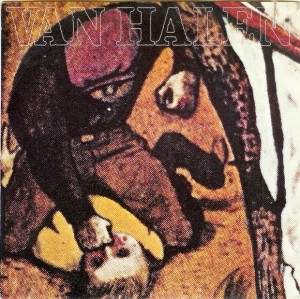“Push Comes To Shove” is the 6th track on Fair Warning.
According to Eddie, this song came about partly because Dave wanted to cash in on the reggae craze that was sweeping the country in the early 1980s.
Eddie played the guitar solo at least 20 times, but Ted Templeman wasn’t happy with it. They called it a day, and Eddie returned to the studio that night and played it again, the same way he had done earlier that day. The next day he showed it to Templeman and the producer loved it.
An attempt to come up with a reggae-inflected tune, as David Lee Roth observed at the time: ‘This is kind of a cosmic Latin reggae song. The hardest part about this song is going to be figuring out what kind of clothes to wear for it. I kind of envision something with fruit on its head and six-inch clogs.’ So, there you go. It is a song that features one of Eddie Van Halen’s best horn-like guitar breaks—he phrases like a sax or trumpet player, not like a rock guitarist—and apparently influenced by English guitarist Allan Holdsworth, with whom he had recently been spending time. Mike Anthony, not often able to assume prominence as a bass player due to the way the band was set-up, supplies bass line that is more jazz-funk than reggae.
The lone ballad on the album, “Push Comes to Shove”, oddly follows “Unchained“, a melancholy bluesy outing for the band that serves as Roth’s lonely reflections on a rock ‘n’ roll life where few of his female encounters remember his first name after 40 one night stands in various cities across the country. Van Halen’s tours in the late 1970s and early 1980s were legendary for their length and willingness to play anywhere, and this song might be the group’s best reflection on that life. Another singular Edward Van Halen guitar solo, with fewer reliances on aural tricks than other solos, punctuates the song nicely, working in tandem with the other players.
From Guitar World:
Although Eddie says that “Push Comes To Shove” was “Roth’s idea of trying to cash in on the reggae thing,” it’s really more of a slow, grinding funk song, thanks to Michael Anthony’s disco bass line, Alex’s steady drumming and Eddie’s chorus-processed rhythms that slink instead of skank. The solo, however, veers into jazz-fusion territory as Eddie unleashes smooth legato lines reminiscent of Allan Holdsworth and palm-muted melodic runs a la Al Di Meola.
David Lee Roth’s original hand-written lyrics from 1981:

